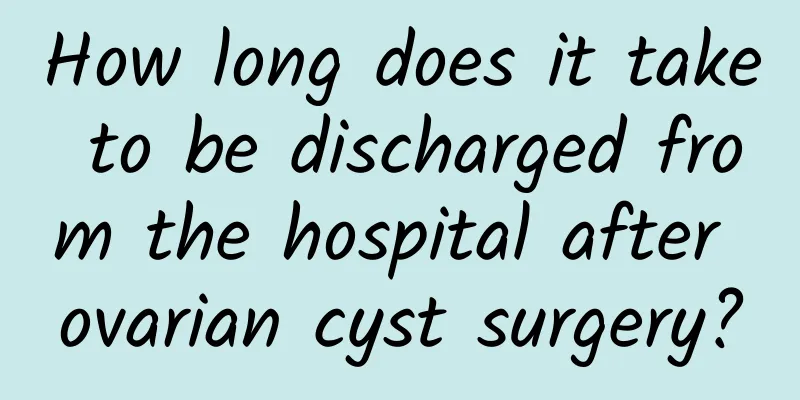Is the cure rate for polycystic ovary syndrome high?

|
Women with polycystic ovary syndrome have a very difficult time in their quest for a child. Some patients have successfully conceived through various treatments, but the good times don't last long. Because expectant mothers with polycystic ovary syndrome are very prone to miscarriage, it is a heavy blow to the patients. So is the cure rate of miscarriage in polycystic ovary syndrome high? The treatment of polycystic ovary syndrome needs to start from the following three aspects: 1. General treatment. Patients should actively exercise, reduce the intake of high-fat and high-sugar foods, and lose weight. This can reduce androgen levels and help restore ovulation. 2. Drug treatment. Drug treatment can counteract the effects of androgens and promote ovarian ovulation. The drugs used are mainly oral contraceptives, which can also adjust the cycle. Generally, it takes about 3-6 months to take the medicine, and you can stop taking the medicine after the hormone level is tested to be normal. 3. Laparoscopic surgery. If the above two methods are not effective, laparoscopic surgery should be considered. Under laparoscopy, the follicles are punctured to reduce the androgen level, thus achieving the treatment goal. According to clinical experience, patients can generally resume ovulation and become pregnant after their symptoms are under control. However, some patients will also have relapses, which requires regular check-ups at the hospital. For your current situation, it is recommended that you take targeted treatment under the guidance of your attending physician. Traditional Chinese medicine is quite effective in treating polycystic ovary syndrome-induced miscarriage, with a high cure rate. Traditional Chinese medicine treatment can counteract the effects of androgens, promote ovarian ovulation, and adjust the menstrual cycle. After the hormone level test is normal, you can stop taking the medicine. The irregular menstruation and infertility manifested by PCOS are basically due to insufficient kidney qi and stagnation of liver qi. The kidney is not only related to the reproductive function regulated by the hypothalamus-pituitary-ovarian axis, but also to the development of other parts of the body including the brain, and is also affected by factors such as thinking, emotions, and environment. Therefore, internal and external factors can affect the regulation of menstruation through the kidneys. At the same time, according to the traditional Chinese medicine understanding of "liver and kidney are of the same origin", in some patients with menstrual disorders, in addition to insufficient kidney qi, they also show symptoms of liver depression turning into fire. Kidney deficiency cannot evaporate the body fluid in the lower jiao, which accumulates into phlegm, so polycystic ovary syndrome is manifested as obesity and ovarian enlargement. In addition to kidney deficiency, the disease also has the manifestation of blood stasis in the meridians, that is, scanty menstruation, amenorrhea, etc. Therefore, it is generally believed that polycystic ovary syndrome is a kidney deficiency, among which there are still distinctions between liver depression, phlegm dampness, and blood stasis. |
<<: How to take care of miscarriage?
>>: Abortion Overview Special Topic
Recommend
What are the treatments for vaginitis?
Among gynecological diseases, vaginitis is a rela...
Study: Obesity between the ages of 30 and 39 may increase the risk of dementia! Young people need to prevent the three highs and metabolic syndrome
Everyone stays away from obesity. Besides the fac...
Are chocolate cysts contagious?
Is chocolate cyst contagious? I believe this is a...
Ovarian tumors also often occur in teenage girls
Do you know who are the most susceptible to ovari...
Bacterial vaginosis diagnostic indicators
In modern society, most urban female white-collar...
What medicine is good for irregular menstruation? Traditional Chinese medicine treatment for irregular menstruation
The appearance of irregular menstruation makes ma...
Can’t eat noodles or drink bubble tea to fight cancer? Two keys to cancer diet! Nutritionist explains: Can quitting sugar starve cancer cells to death?
There have always been different opinions on the ...
Beware of ovarian tumors when amenorrhea occurs
Ovarian tumors refer to tumors that occur on the ...
Fat burning power upgraded! 3 tips to strengthen your core muscles
If you want to lose weight healthily, jogging is ...
Experts explain important dietary tips for painless abortion
Although the process of painless abortion is almo...
How to prepare for pregnancy with irregular menstruation
Irregular menstruation is a very common phenomeno...
I had sex 28 days after the abortion.
Abortion refers to artificial abortion. Generally...
Does pelvic effusion affect pregnancy?
Does pelvic effusion affect pregnancy? Physiologi...
Is ovulation bleeding normal? Causes of ovulation bleeding
Some women will have a small amount of bleeding d...
All the big bosses are doing it! Jogging to eliminate chronic fatigue
Most people think that they should rest when they...









